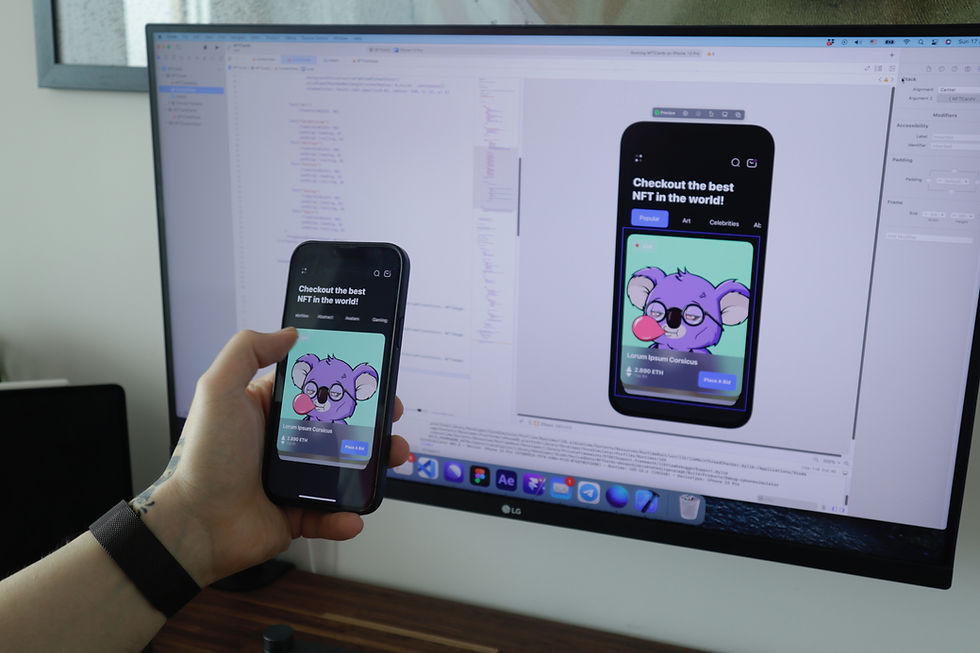How to improve performance of Android apps built using Kotlin
- Apr 5, 2023
- 2 min read

Kotlin is a popular programming language used by Android developers to build high-quality, performant mobile apps. However, even with the benefits of Kotlin, app performance can still be a concern for developers. In this blog post, we'll explore some tips and techniques to help improve the performance of Android apps built using Kotlin.
1. Use Kotlin's null safety features
One of Kotlin's significant advantages is its null safety feature, which helps prevent null pointer exceptions. However, if not used correctly, null safety can result in performance issues. To avoid this, use the Elvis operator (?:) instead of null checks, as it performs better at runtime.
val result = nullableValue ?: defaultValue2. Optimize memory usage
Memory usage can significantly impact app performance. To optimize memory usage, avoid creating new objects unnecessarily, as it can lead to memory leaks and affect app performance. Additionally, use data classes instead of regular classes, as data classes are more efficient in terms of memory usage.
3. Use lazy initialization
Lazy initialization is a technique that delays the creation of objects until they are needed. Using lazy initialization can help reduce app startup time and improve overall performance. You can use the by lazy keyword to implement lazy initialization.
val myObject: MyObject by lazy { MyObject() }4. Use inline functions
Inline functions can help improve app performance by reducing the function call overhead. Use the inline keyword to declare a function as inline.
inline fun performTask() {
// function code here
}5. Use coroutines
Coroutines are a powerful feature in Kotlin that can help improve app performance by executing tasks asynchronously. Coroutines can perform tasks without blocking the main thread, reducing the risk of UI freezes and improving app performance.
To use coroutines, you need to add the kotlinx-coroutines-android library to your app.
GlobalScope.launch {
// Coroutine code here
}6. Use Kotlin extensions
Kotlin extensions are a convenient feature that can help reduce boilerplate code and improve app performance. You can use Kotlin extensions to add functionality to existing classes without creating subclasses. For example, you can use an extension function to simplify view binding code.
fun <T : ViewBinding> AppCompatActivity.bind(viewBindingFactory: (LayoutInflater) -> T): T {
return viewBindingFactory.invoke(layoutInflater).apply {
setContentView(root)
}
}7. Use performance monitoring tools
Integrate SDKs that monitors and reports performance issues and bugs in realtime. Some of the tools available are Firebase Crashlytics, Bugsnag, New Relic, Finotes and Instabug.
8. Use the latest Kotlin version
Finally, make sure you are using the latest version of Kotlin. Newer versions of Kotlin often include performance improvements and bug fixes that can help improve app performance. You can check the latest version of Kotlin on the official Kotlin website.
Conclusion
Kotlin is a powerful programming language that can help you build high-quality, performant Android apps. By using Kotlin's null safety features, optimizing memory usage, using lazy initialization, using inline functions, using coroutines, using Kotlin extensions, using performance monitoring tools and using the latest Kotlin version, you can further improve app performance and provide a seamless user experience.



Comments